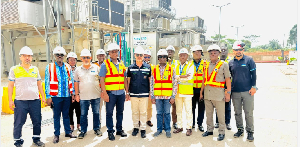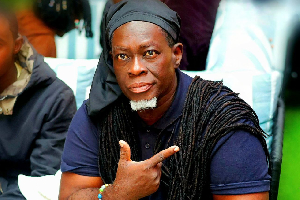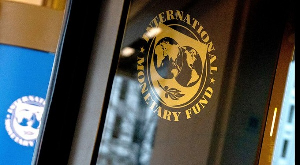President John Dramani Mahama has promised investors a decent return if they partner with government to build and operate infrastructure, while pledging to work with lawmakers to ensure the passage of the Public-Private Partnership (PPP) law by the end of the year.
Addressing delegates at the opening of a four-day Global PPP Conference in Accra, the President, through a speech read by Rashid Pelpuo, the Minister responsible for PPPs, said government will provide the necessary regulatory framework to ensure that investors earn a tidy return from projects executed with the state.
Ghana faces a constrained fiscal situation, which is driving the push for private sector involvement in building public infrastructure.
President Mahama said the PPP model offers a solution, hence the establishment of a national regulatory framework and a PPP unit at the Ministry of Finance to orchestrate, facilitate, and support PPP opportunities across all sectors of the economy.
“Our stated aim is to encourage private sector involvement in public sector investment. We will support all private investors and ensure that they are not over-burdened by petty bureaucracy. Where necessary, we will expedite the passage of enabling regulations to improve the ease of doing business.”
He said broad consultations with stakeholders have taken place on the draft PPP legislation, which will be laid before parliament shortly.
“In the context of our win-win partnerships, investors must receive a fair return for their risk capital and, in return, we expect know-how and technology transfer and a commitment to local employment.”
The Ministry of Finance estimates that the country’s infrastructure deficit – covering housing, transport, aviation, power and water – requires annual spending of about US$1.5billion up to 2020 to fix.
However, given the country’s precarious finances, it is untenable for government to rely on borrowing only to bridge the infrastructure gap, a situation that has heightened the demand for private capital and assistance.
Government in its mid-year budget review announced a wider fiscal deficit for 2014, citing increased spending on subsidies and wages. It forecasted an overall budget deficit equivalent to 8.8 percent of GDP, compared with an initial target of 8.5 percent.
The country adopted a PPP policy in 2011 as a means to leverage private sector funds to address its infrastructure needs.
The policy – unlike total government-financed investment – allows the private sector to share in the risks of public investments as well as avail itself of the benefits of commercially viable public infrastructure projects.
The policy states that “the feasibility study for each PPP project shall clearly identify and propose allocation of all specific and major project risks as well as generic risks. The contractual arrangement for each PPP project shall be based on a risk-allocation profile.”
Yusupha Crookes, the World Bank’s Country Director for Ghana, Liberia, and Sierra Leone, speaking to the B&FT on the sidelines of the conference, said the draft PPP law is “certainly clear about the process, the rules of engagement and the protection for private capital.”
“Most countries cannot raise all the investment resources from their own borrowing sources or from their own tax revenue. Ghana is particularly constrained by its fiscal space in meeting its infrastructure needs. So Ghana needs to position itself to be able to find alternative sources of capital.
“The private sector can bring in the capital if there are conditions for it to get an appropriate return and if the risks that it perceives it might encounter are appropriately mitigated.”
Government is currently seeking private investment to construct a dual 185-kilometre highway between Accra and Takoradi. The Ministry of Roads and Highways and the Ghana Highway Authority have engaged a transactional advisor to conduct a prefeasibility study for the project.
The Accra-Tema motorway, which forms part of the Trans-West Africa Highway Corridor, is also planned for development. The Boankra Inland Port, Eastern Railway Line Project, the establishment of a new airline, and the Asutsuare Bulk Water Project are other projects government is seeking private capital to execute.
The Global PPP Conference is an initiative of C-NERGY Ghana, the local subsidiary of investment advisory firm C-NERGY Global, and is being held in partnership with the Ministry of Finance.
Business News of Thursday, 21 August 2014
Source: B&FT
Mahama pledges decent returns on PPPs













